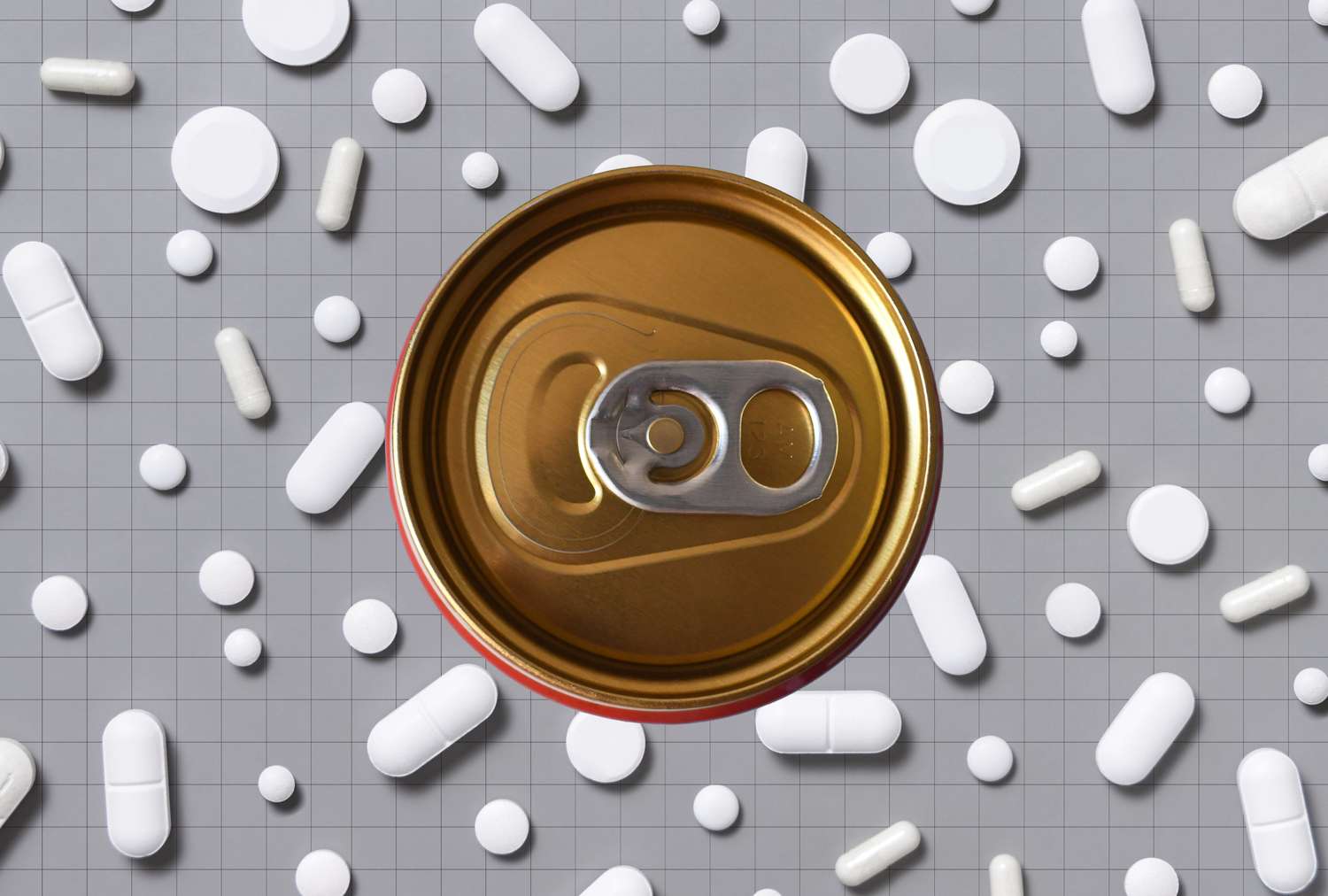Experts agree that soda can interfere with how certain drugs are absorbed and how they are processed and function in your body. It’s best not to drink soda with some medications like antacids, levothyroxine and azole antifungals.If you want a soda alternative, talk with a health care professional to ensure it doesn’t interact with your medicine.
Grabbing a can of soda to help wash down a dose of medication may seem harmless. But experts warn that pairing your medications with soda can actually change how your body absorbs, processes or tolerates the drug. “Soda’s caffeine, carbonation and acidity can interfere with absorption, worsen stomach irritation or amplify side effects,” warns Suzanne Soliman, Pharm.D., BCMAS.
The safest bet? Skip the soda when you’re taking any sort of medication, but especially when taking these six types. Here we’re sharing a breakdown of common medications that don’t mix well with soda—plus refreshing alternatives you can enjoy instead.
1. Antacids
If you’re taking an antacid to ease heartburn or indigestion, swallowing it down with a sip of soda may work against you. Soliman shares that antacids work by neutralizing acids in the stomach. In contrast, the acidity and carbonation in sodas can create unwelcome gas and belching, which can worsen bloating and reflux symptoms. For real relief, Soliman suggests taking your antacid with water and avoiding soda for at least an hour.
2. Levothyroxine
When it comes to hypothyroid medications like levothyroxine (Synthroid), it’s best to steer clear of washing it down with soda. This is because levothyroxine is best taken on an empty stomach to avoid reduced absorption. As such, Soliman advises taking levothyroxine first thing in the morning with plain water and waiting at least 30 to 60 minutes before drinking soda or eating food.
3. Azole Antifungals
Antifungal medications that end with “-azole”, such as ketoconazole, itraconazole and posaconazole, are commonly used to treat fungal infections like yeast infections and athlete’s foot.,, This class of medications functions by damaging the membranes and killing fungi. But their effectiveness can be altered when taken with soda. Clinical pharmacist Alisa Reed, M.B.A., BCGP, explains that soda (specifically, cola-type sodas) increases the serum concentration of azole antifungals, which can be toxic to the body., To avoid toxicity, it’s recommended to avoid colas while taking these so that the medication can safely fight the infection.
4. Tetracycline Antibiotics
From acne flare-ups to pneumonia and urinary tract infections, tetracycline antibiotics are widely used to combat bacterial infections. For these medications to work properly, your body needs to be able to absorb them efficiently. Therefore, guidelines state that tetracyclines are best taken on an empty stomach to prevent absorption issues. More specifically, Soliman shares that they should be taken with plain water and at least one to two hours before consuming anything, including soda.
5. Methotrexate
Methotrexate is a medication that is used to manage autoimmune conditions like rheumatoid arthritis and psoriasis, as well as certain types of cancers. Depending on the dose, it works by reducing inflammation, suppressing the immune response or halting the growth of cancer cells. However, taking methotrexate with soda can create problems. “Cola and other sodas are high in caffeine, which may increase methotrexate’s toxicity,” says Soliman. Rather than taking it with a bottle of soda pop, it’s best to stick to water.
6. Alendronate
Alendronate (Fosamax), is prescribed to prevent and treat osteoporosis by slowing down bone breakdown and reducing the risk of fractures. Drinking soda at the same time can make the medication less effective. For one, “soda is acidic, and anything other than plain water decreases absorption dramatically,” says Soliman. Plus, soda’s carbonation can irritate the esophagus, compounding the drug’s tendency to cause heartburn, adds Soliman. To avoid this, Soliman emphasizes that alendronate should be taken first thing in the morning with plain water only and 30 minutes before any other drinks or food.
Soda Alternatives Worth Trying
Though soda may be your go-to bubbly beverage for taste and sweetness, water is by far the safest pairing with medications. “I always recommend that patients take medications with water to avoid potential drug interactions,” says Reed. But, if you still desire fizz, flavor or sweetness, Soliman recommends these soda alternatives:
If you like fizz: Try either plain or lightly flavored sparkling water. “Gentle carbonation can still feel like soda without reducing absorption or causing big blood sugar spikes. But, if carbonation irritates your stomach or interacts with certain meds (like alendronate), stick to still water at dosing time, and enjoy sparkling water later,” says Soliman.
If you like sweetness: Soliman recommends trying infused water with fruit. “Infused water is hydrating and naturally flavored without the acids of caffeine.” Soliman suggests making a large pitcher of infused water with berries or cucumber.
However, you should always consult a pharmacist or your health care provider before taking your medications with anything other than water. This way, you can ensure that you aren’t interfering with its absorption or effectiveness.
Our Expert Take
Soda may be a popular drink, but it’s not safe to consume with many medications. Experts agree that its caffeine, acidity and high carbonation can interfere with how certain drugs are absorbed and processed and how they function. For these reasons, it’s best not to drink soda with antacids, levothyroxine, azole antifungals, tetracycline antibiotics, methotrexate and alendronate. Water remains the most reliable and safe option when it’s time to take your medications. If you want to enjoy a soda alternative, it’s best to talk with a health care professional to make sure it doesn’t interact with your prescription.

